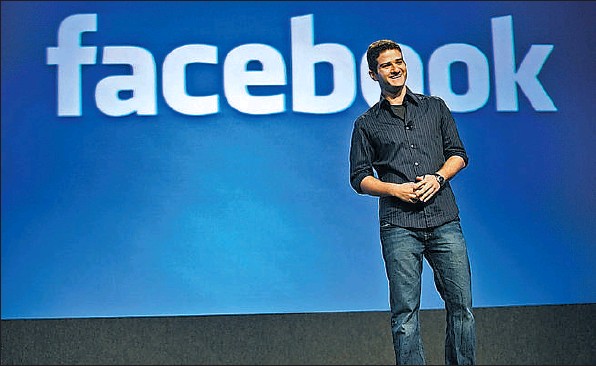Nearly six million users sign up for new naming convention on social media site
Gillian Shaw
Sun

Dustin Moskovitz (above) co-founded Facebook in 2004 with Mark Zuckerberg while the two were students at Harvard University. On Monday, the URL address for facebook.com/DustinMoskovitz was showing ‘not found’, while facebook.com/MarkZuckerberg directed users to his personal Facebook page.
Gordon Campbell has one. Carole James doesn’t. Both Stephen Harper and Michael Ignatieff have them. And so does Britney Spears.
Vanoc has the Olympics, but Terry Johnson in Japan has laid claim to VancouverOlympics.
At least that was the case in a check Monday on the status of the latest digital rights rush as Facebook users flocked to grab their Facebook’s version of vanity plates — website addresses that stake out a Facebook identity.
The vanity URLs (the web address you type into your browser to reach a website) replace Facebook’s randomly assigned numbers. Under the new naming system, you could be www.facebook.com/yournamehere.
(Actually, forget that example. You can’t be www.facebook.com/yournamehere because that was already snapped up by one James Kaminski.)
Previously, addresses had strings of letters and numbers. The change is intended to make it easier to find Facebook members through search engines such as Google.
With social media climbing on the corporate and individual agenda, the latest digital rights rush saw members grabbing names at a rate of more than 550 per second starting at midnight eastern time on Friday, when it was opened to all Facebook users.
Within 15 minutes, 500,000 users had claimed names. By Monday afternoon, about 5.75 million users worldwide had claimed their personalized addresses.
Digital dawdlers may find their names are already taken. While Facebook did take measures to prevent cyber-squatters from snapping up names — such as preventing people from creating new Facebook accounts just to claim web addresses for corporate and celebrity names — for the general Facebook population, it was a first-come, first-served scramble.
While domain name registration created a boon for copyright and trademark lawyers (and some are predicting the Facebook free-for-all could result in similar disputes), Michael Geist, Canada research chair of Internet and e-commerce law at the University of Ottawa, said the Facebook situation is different.
“I am not convinced this is going to be a big issue,” he said. “There was a lot of uproar and a lot of dire warnings from lawyers, but Facebook controls the environment and that is somewhat different from domain disputes.
“It puts Facebook in control.”
The company has protected many names, including those of well-known celebrities, teams, politicians and brands. You won’t find anything at www.facebook.com/angelinajolie for example, but if you check availability for that name, you’ll get a message saying it’s not available.
Not so for B.C. NDP leader Carole James. That name was still available as of this writing, as was BC NDP. Gordon Campbell and the B.C. Liberals were firmly ensconced on their particular piece of Facebook cyberturf at www.facebook.com/GordonCampbell and www.facebook.com/BCLiberals.
There also appeared to be two local men who had signed up for names associated with The Vancouver Sun and The Province newspapers, and users are being redirected to their personal Facebook pages.
Facebook has provisions for individuals and corporations who feel their intellectual property rights have been infringed.
And the company says users can’t transfer their names to other accounts. The company will also allow users to claim a name only if they had an account before the feature was announced June 9. This will prevent people from creating new accounts just to grab their addresses, Facebook said. That restriction lifts on June 28.
However, Geist points out that name conflicts may not necessarily have a clearcut answer, and Facebook is operating in a global environment while most rights are limited to a particular class and country.
“In some ways, Facebook has to be careful before it steps into some of these disputes,” he said. “One person’s trademark infringement is another person’s free speech.”
© Copyright (c) The Vancouver Sun

